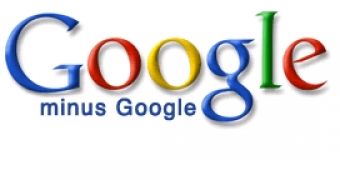Following the wave of concern expressed by several media companies that Google was favoring its own services and websites in search results, like the new Knol service, Timo Paloheimo, a Finnish digital planner for an advertising agency, had an interesting idea - to give people the option to use Google search without getting results from Google's own websites. He went on and created a service that does just that, and named it Google minus Google.
A while back, Google launched a service called Knol, which aims at becoming an encyclopedia written by experts (as opposed to Wikipedia, which can be edited by anyone). Not long after it was launched, people started to notice that, when searching various names like products or services on Google, results from Knol pages appeared higher than the original pages related to those names.
This raised some questions with advertising and media companies, to which Google was supposed to be a partner and not a competitor. Co-Chief Executive at Martha Stewart Living Omnimedia Wenda Harris Millard, commented at that time that, "if in fact a Google property is taking money away from Google's partners, that is a real problem." Google denied these accusations through Gabriel Stricker, a company spokesman, who pointed out that "when you see Knol pages rank high, they are there because they have earned their position."
This didn't stop Timo Paloheimo, though, as he still thought that having search results free of Google owned services would be interesting - and he wasn't wrong, as his Google minus Google service had over 3,000 visitors in the first day and generated a lot of feedback on his blog. The service attracted the attention of a few Finnish IT news companies who wrote about it, thus contributing to its success.
The growing success and incoming suggestions made Timo Paloheimo even release a second version of the service. This one uses the Google Custom Search (CSE) and excludes a number of over 2,500 Google owned domain names from the search results. Mr. Paloheimo explained that the second version was more difficult to create in comparison with the first because "CSE doesn't allow wildcard usage in the top level domain (like google.*), but it can be used in the normal query."

 14 DAY TRIAL //
14 DAY TRIAL //